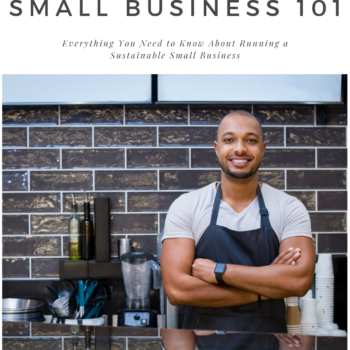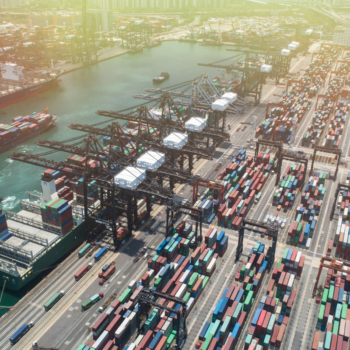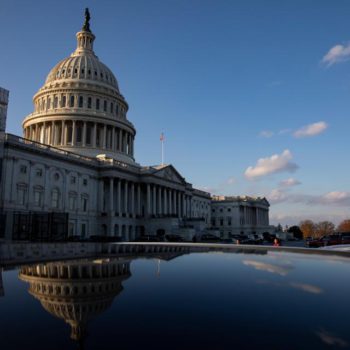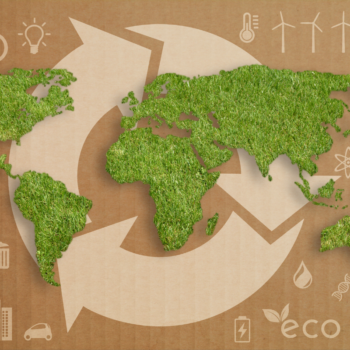|
|
Exploring ethical fashion podcast informs you about the industry’s latest trends, challenges, and innovations. Whether you’re interested in learning about the environmental impact of fast fashion, hearing inspiring stories from sustainable fashion pioneers, or understanding the role of fashion journalists in driving change, there’s a podcast out there for you. Take the time to explore these podcasts and join the conversation on ethical and sustainable fashion.
What is Sustainable fashion, and why is it important?
Understanding the concept of sustainable fashion
Sustainable or slow fashion is a holistic approach to clothing production and consumption considering the fashion industry’s environmental, social, and economic impact. It aims to minimize harm to the planet and people while maximizing positive social and environmental contributions. Fundamental principles of sustainable fashion include reducing waste, using eco-friendly materials, supporting fair labour practices, and promoting circularity in the fashion supply chain.
The impact of fast fashion on the environment
Fast fashion, characterized by the rapid production and consumption of cheap, trendy clothing, has left a significant ecological footprint on our planet. This detrimental impact encompasses various environmental issues:
- Pollution: The manufacturing processes involved in fast fashion often rely on hazardous chemicals. For example, dyes and finishes can contain toxic substances that harm the environment and human health. These chemicals can end up in water systems, causing water pollution and endangering aquatic life.
- Deforestation: Large areas of forests are often cleared to make room for cotton and other crops used in fast fashion. This deforestation threatens biodiversity and contributes to climate change by releasing stored carbon into the atmosphere.
- Depletion of Natural Resources: The fast fashion industry heavily relies on finite resources like water and fossil fuels. Excessive water usage for textile dyeing and finishing processes places strain on already scarce water supplies in many regions. Additionally, energy-intensive clothing production contributes to the depletion of fossil fuels.
- Textile Waste: Fast fashion garments are designed for quick turnover, with many consumers discarding them after just a few wears. This disposability creates a substantial amount of textile waste, which ends up in landfills. These overflowing landfills are a global issue, as textile waste does not readily decompose.
Here is a data table summarizing the facts and percentages related to the impact of fast fashion on the environment:
| Environmental Issue Description Percentage | Description | Percentage of Impact |
|---|---|---|
| Pollution | Hazardous chemicals used in manufacturing contributes to pollution and water contamination. | High |
| Deforestation | Clearing of forests for crop cultivation used in clothing production. | Moderate Depletion |
| Depletion of Natural Resources | Excessive water and energy consumption in textile production. | High |
| Textile Waste | Disposal of fast fashion garments leads to overflowing landfills. | High |
Please note that the “Percentage of Impact” is a qualitative assessment and may vary depending on specific regions and practices within the fast fashion industry.
In conclusion, fast fashion’s rapid production and disposal practices have detrimental environmental consequences, including pollution, deforestation, resource depletion, and textile waste. In contrast, sustainable fashion promotes responsible consumption, reduces carbon footprints, and champions ethical practices, benefiting individuals and the planet. Embracing sustainable fashion allows consumers to make conscious choices that support a more environmentally friendly and socially responsible future.
Exploring the benefits of sustainable fashion
On the other hand, sustainable fashion offers a more responsible approach. It promotes ethical and environmentally conscious practices, resulting in various benefits:
- Responsible Consumption: Sustainable fashion encourages responsible consumption and production patterns. Consumers are urged to buy fewer high-quality pieces with a longer lifespan, reducing the demand for new clothing.
- Reduced Carbon Footprint: Sustainable fashion brands prioritize sustainable materials, ethical production, and local sourcing. These choices contribute to a reduced carbon footprint compared to traditional fast fashion practices.
- Recycled and Upcycled Materials: Sustainable fashion embraces recycled and upcycled materials, minimizing the need for virgin resources—for example, recycled polyester from plastic bottles or upcycled denim from old jeans.
- Ethical Labor Practices: Ethical and sustainable fashion brands prioritize fair labour practices, ensuring better working conditions for garment workers and supporting their rights.
- Empowerment of Communities: Sustainable fashion often involves local communities in production processes, empowering them economically and socially.
- Personal Style and Values: Sustainable fashion allows consumers to express their unique style while aligning their clothing choices with their values and principles.
Top sustainable fashion podcasts to listen to
Pre-Loved Podcast: Embracing Second-Hand Style

Emily Stochl hosts the Pre-Loved Podcast and explores the world of second-hand fashion. It covers topics such as thrifting tips, sustainable shopping, and interviews with experts in the field. This podcast is perfect for those interested in integrating second-hand clothing into their wardrobes and learning about the positive impact of choosing pre-loved fashion.
Conscious Style Podcast: Navigating Ethical Fashion
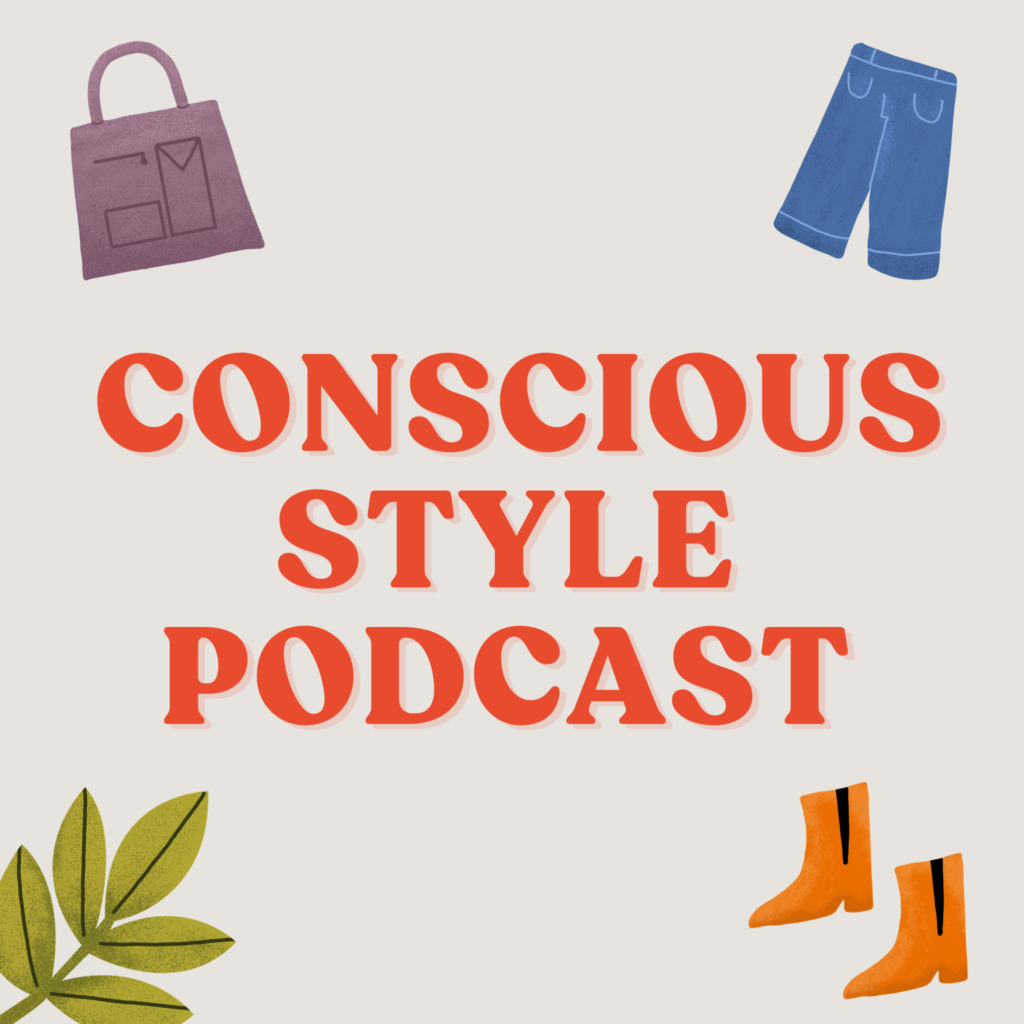
The Conscious Style Podcast, hosted by Canadian fashion journalist Elizabeth Stilwell, delves into ethical fashion. It interviews industry leaders and sustainable fashion brands and offers insights into sustainable lifestyle choices. This podcast is a valuable resource for anyone interested in exploring the intersection between style and sustainability.
Fashion Revolution Podcast: Uncovering the Truth Behind the Fashion Industry
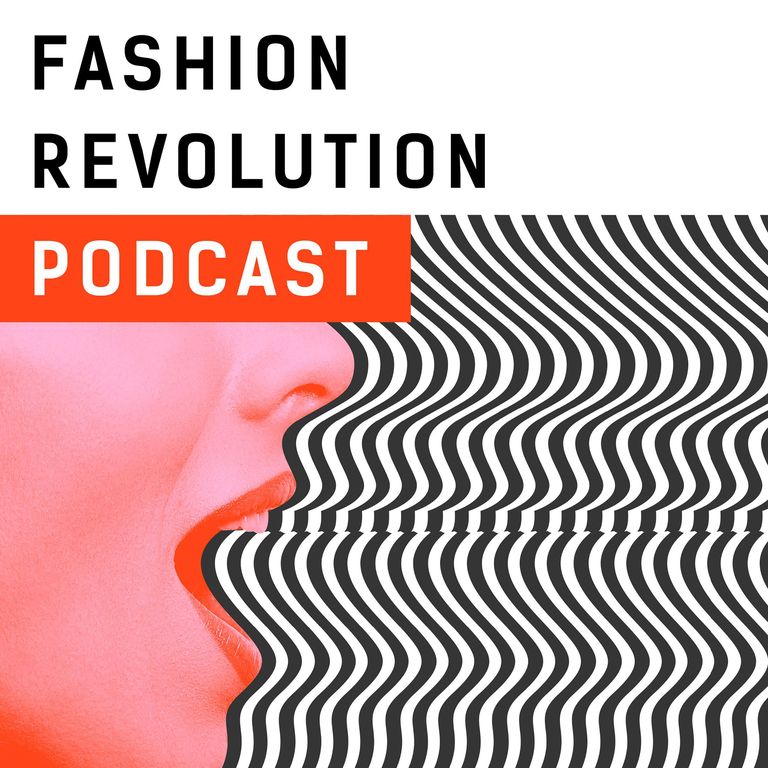
The Fashion Revolution Podcast, originating from the global movement, dives deep into the fashion industry and covers supply chain transparency, worker rights, and sustainable development topics. It aims to educate and inspire listeners to become more conscious consumers and advocates for a fair and sustainable fashion industry.
Interview with Clare Press: A Sustainable Fashion Journalist
Clare Press’s journey into sustainable fashion journalism
Clare Press is an influential sustainable fashion journalist and author. She shares her journey into sustainable fashion journalism, highlighting her passion for ethical fashion and desire to drive positive change within the industry. Press has written extensively on sustainable fashion, and her work has significantly impacted raising awareness and inspiring action.
Clare Press is a Sydney-based sustainability communicator, filmmaker, author, and presenter known for founding THE WARDROBE CRISIS and co-hosting the Ethical Fashion podcast with UN officer Simone Cipriani. She made history as VOGUE’s first-ever Sustainability Editor (Vogue Australia, 2018-2020) and was the inaugural Global Ambassador for the Ellen MacArthur Foundation’s Make Fashion Circular initiative.
Clare has been actively involved in the Australian advisory board of Fashion Revolution since 2014, contributed to Copenhagen Fashion Week’s Sustainability Advisory Board, and engaged with the UK’s Fashion Roundtable. Her remarkable contributions earned the 2019 Sustainability Champion Award from the New South Wales government.
Clare’s international speaking engagements, spanning nine countries, and her appearances on radio and TV have established her as a renowned figure in sustainable fashion.
The role of fashion journalists in promoting ethical and sustainable practices
Fashion journalists are crucial in promoting ethical and sustainable practices within the fashion industry. Through their writing, interviews, and storytelling, they highlight important issues and the work of sustainable fashion brands and initiatives. Fashion journalists educate and empower consumers to make more informed choices and encourage brands to adopt more sustainable practices.
Insights from Clare Press on the future of the fashion industry
In an interview with Clare Press, she shares her insights on the fashion industry’s future. Press discusses the importance of embracing sustainability as a core value within the fashion business and highlights the need for systemic change. She emphasizes the role of consumers in driving this change through conscious consumption. She supports the idea that sustainable fashion is not just a trend but a necessary shift towards a more responsible and equitable industry.
The Ethical Fashion Initiative: Making a Difference in the Fashion Supply Chain
Understanding the mission of the Ethical Fashion Initiative
The Ethical Fashion Initiative (EFI) is a flagship program of the International Trade Centre (ITC) that bridges the gap between the fashion industry and artisans in developing countries. Its mission is to empower artisans, foster sustainable livelihoods, and promote responsible fashion production. By connecting artisans with fashion brands, EFI ensures fair trade practices and encourages the preservation of traditional craftsmanship.
The impact of the fashion supply chain on workers and the environment
The fashion supply chain wields significant influence over workers and the environment, with far-reaching consequences. Garment factories have been criticized for sweatshop conditions, while chemical-intensive production processes contribute to pollution. However, initiatives like the Ethical Fashion Initiative strive to reverse these negative trends.
The Ethical Fashion Initiative is making a difference by focusing on improving working conditions, reducing the environmental footprint, and championing transparency and accountability within the supply chain.
Examples of fashion brands collaborating with the Ethical Fashion Initiative
Numerous prominent fashion brands have recognized the importance of partnering with the Ethical Fashion Initiative. Through these collaborations, brands create sustainable collections and provide artisans with fair wages and access to the global market. This empowers artisans to showcase their craftsmanship and improve their livelihoods.
By supporting these brands, consumers can actively foster positive change within the fashion industry and promote sustainable development.
Exploring the Intersection of Sustainability and American Fashion
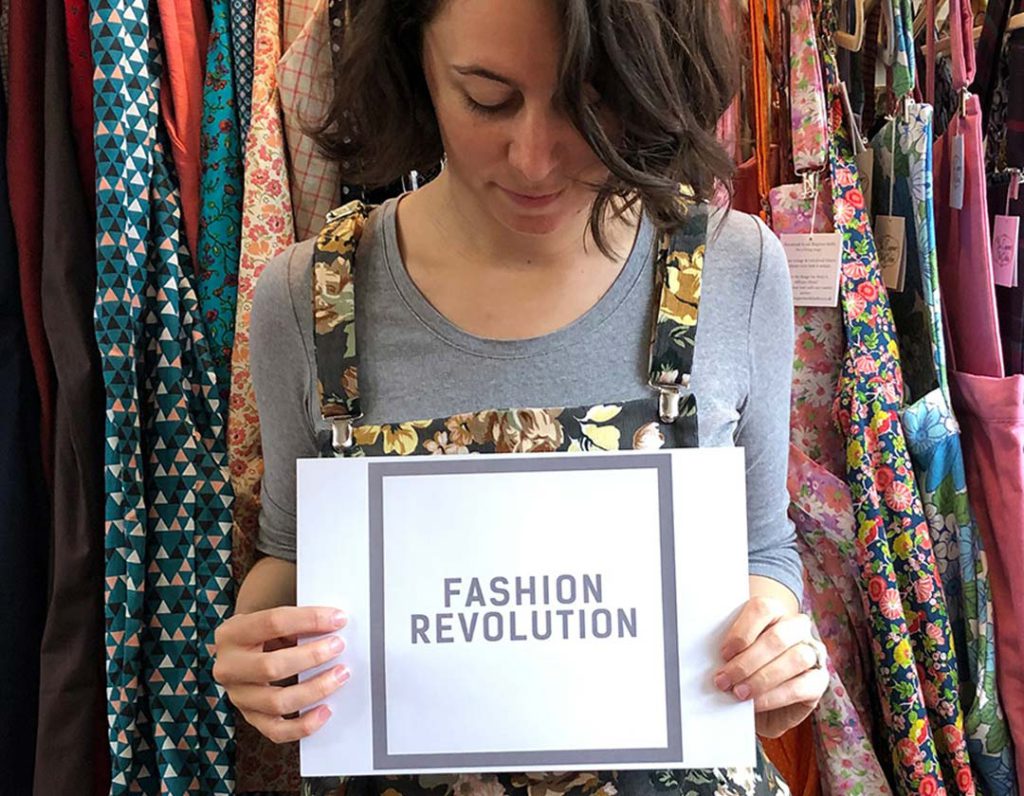
Image Credit: https://www.theemperorsoldclothes.co.uk/fashion-revolution-week-2019/
The current state of sustainable fashion in America
The sustainable fashion movement is gaining momentum in the United States, with an increasing number of American brands and consumers actively participating in this transformative shift. American fashion labels recognize the importance of integrating sustainability into their core business models, embracing eco-friendly materials, and ensuring fair labour conditions in their supply chains. Despite these positive strides, work remains to establish a fully sustainable and ethical fashion industry in America.
Challenges and opportunities for sustainable fashion in the American market
Challenges and opportunities coexist within the American sustainable fashion landscape. One significant challenge is the enduring demand for fast fashion and the deeply ingrained culture of consumerism. Overcoming these entrenched habits and preferences poses a hurdle to adopting sustainable practices.
Additionally, the lack of transparency and traceability in the fashion supply chain makes it challenging for consumers to make informed choices. Nevertheless, opportunities for growth and innovation in sustainable fashion abound as consumers increasingly seek alternatives that align with their values and ethical principles.
Initiatives and organizations driving sustainable practices in American fashion
Several initiatives and organizations are at the forefront of propelling sustainable practices in the American fashion industry. Notable among them is the Sustainable Apparel Coalition, dedicated to improving transparency and accountability across the fashion supply chain. Fashion Revolution USA is another influential organization that advocates ethical and sustainable fashion practices.
The Council of Fashion Designers of America (CFDA) also plays a pivotal role through its Sustainability Program, fostering collaborations and knowledge-sharing among designers, brands, and consumers. These collective efforts contribute to the ongoing transformation of the American fashion landscape toward sustainability and ethics
Frequently Asked Questions
The case of this FAQ is “Exploring Ethical and Sustainable Fashion Podcasts.”
Sustainable fashion refers to clothing, footwear, and accessories designed, manufactured, distributed, and used in environmentally friendly, socially responsible, and economically viable ways.
Podcasts are digital audio or video files that can be streamed or downloaded online. They are typically produced as a series, with new episodes released regularly, and cover a wide range of topics.
Yes, several podcasts specifically explore the topic of sustainable fashion and its various aspects.
The Pre-Loved Podcast is a podcast that explores the world of vintage and secondhand fashion. It discusses topics such as sustainable shopping, thrifting tips, and interviews with experts in the field.
Yes, several podcasts focus on ethical fashion, discussing topics such as the ethical fashion movement, sustainable production practices, and the impact of fast fashion on the environment and workers.
Clare Press is a renowned sustainable fashion journalist and the author of the book “Rise & Resist: How to Change the World.” She is known for her work in highlighting and promoting ethical and sustainable fashion practices.
The Fashion Revolution podcast delves into the issues driving the ethical fashion movement. It features conversations with industry experts, changemakers, and fashion revolutionaries.
Yes, an American Fashion Podcast covers the American fashion industry, discussing emerging designers, sustainability efforts, and the future of American fashion.
The ITC Ethical Fashion Initiative is a flagship program of the International Trade Centre. It connects African artisans and micro-producers to the international fashion supply chain, promoting sustainable development and ethical practices.
Yes, most of these podcasts are available on popular podcast platforms, including Apple Podcasts, where you can listen for free.
Conclusion
In conclusion, ethical and sustainable fashion podcasts provide valuable insights into the fashion industry and equip listeners with the knowledge to make informed choices. Individuals can actively participate in ethical and sustainable conversations by exploring various podcasts and understanding concepts like sustainable fashion, the impact of fast fashion, and the role of fashion journalists and initiatives. Together, we can drive change and shape a more responsible and mindful fashion industry for the future.



